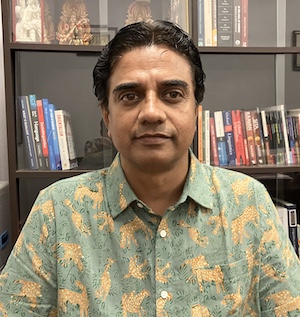
Rajesh Kumar is a professor of linguistics in the Department of Humanities and Social Sciences at the Indian Institute of Technology Madras, Chennai. He obtained his PhD in linguistics from the University of Illinois at Urbana-Champaign. Prior to joining IIT Madras, he taught at IIT Kanpur and IIT Patna in India and at the University of Texas at Austin in the USA. He has been a visiting faculty at the Tata Institute of Social Sciences in Mumbai in India. His book on Syntax of Negation and Licensing of Negative Polarity Items was published by Routledge in their prestigious series Outstanding Dissertations in Linguistics in 2006. He has been associate editor of the journal Language and Language Teaching. He has been part of the language teaching program at all the institutions he has been affiliated with. The broad goal of his research is uncovering regularities underlying both the structural form (what language is) and sociolinguistic functions (what language does) of natural language. He works on structure of South Asian Languages. He is keenly interested in issues related to language (multilingualism) in education; politics; human cognition; and landscape.


Department of Humanities and Social Sciences
Room No.: HSB 333
Indian Institute of Technology Madras
Chennai, Tamil Nadu, India.
PIN Code: 600036
Tel-Phone: +91 44 2257 4500
Email: hsoffice[at]iitm[.]ac[.]in